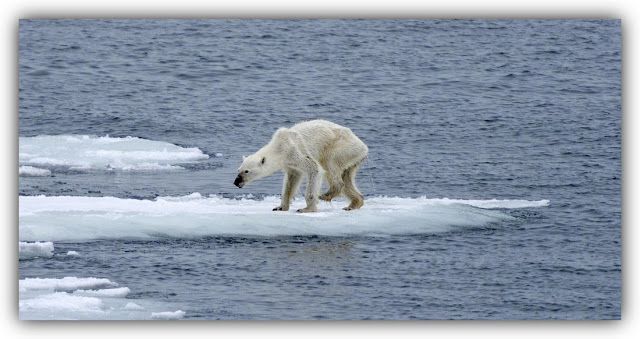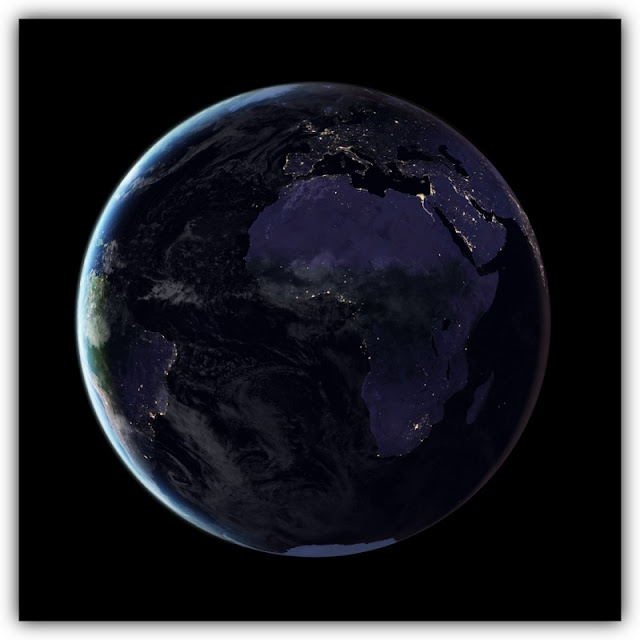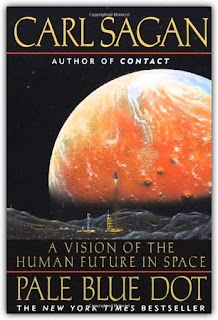Earth
Climate Change
If there were no carbon dioxide in our atmosphere, the entire surface of the Earth would be buried in solid ice. Fortunately for us, throughout all of human history, trace levels of CO₂ have stayed between 260 and 280 parts per million, trapping just enough heat from the sun to make civilization and human life itself possible. Over the last two centuries, however, industrialization and the burning of fossil fuels have added over forty percent more CO₂ to the atmosphere, to 400 ppm, and that number has been climbing rapidly. So, if CO₂ should be trapping much more heat in the atmosphere, why does it not feel significantly hotter?
The answer is in the oceans, which have thus far been mitigating the effects of global warming. In addition to acting as a carbon sink, absorbing some CO₂ from the atmosphere as carbonic acid, the oceans have been acting as a heat sink as well. They are currently (and unevenly) absorbing the excess heat being trapped in our atmosphere by the additional CO₂. As anyone who has ever patiently watched for a kettle to boil knows, water holds much heat. That characteristic has delayed the consequences of exploiting fossil fuels, so far. Over the next several decades, however, the heat-carrying (and carbon-carrying) capacity of the oceans will reach a new equilibrium with the atmosphere, and then the extra heat being trapped will have no place left to go. The Earth’s surface will become considerably hotter. Worse still, that excess heat will increase water-vapor in the air and will hasten the melting of the Greenland and Antarctic ice sheets and northern permafrost, decreasing the Earth’s reflectivity and releasing from beneath the surface trapped stores of methane, a much more potent greenhouse gas—all greatly compounding climate change. We have already destabilized the climate; it is done. Yet climate does not respond instantly. There is a time lag. In fact, if we were somehow to cease all CO₂ emissions immediately, the Earth would continue slowly to heat well beyond this century, until a hotter global equilibrium were eventually reached. And yet we are still recklessly adding over one hundred million metric tons of additional CO₂ to the atmosphere every single day! That represents, not a conservative position, but rather a radical experiment with predictably dire consequences for the delicate balance of life on Earth.
Some have claimed that converting swiftly to renewable sources of energy will damage the economy. This is factually false. During World War II, the United States government spent massive amounts of wealth on a monumental increase in military capacity to fight fascism. The postwar result was the greatest economic expansion in the history of the country. We could easily accomplish this again, improving capacity rather for sustainable energy than for military capacity. And climate change represents a much graver threat to global civilization, to the very survival of our species, than did even the grotesque evils of Nazi Germany, Fascist Italy, and Imperial Japan. Climate change will effectively be permanent and portends severe droughts, famines, resource wars (with or without nuclear weapons and potentially far deadlier than World War II), coastal inundations, whole populations of refugees, and civil unrest on a scale unprecedented in history. If the moderate projections of most climate scientists are accurate, it is uncertain whether civilization, or even humanity, will be able to survive in the long term.
The fossil-fuel industry has used its political and economic influence to resist the conversion to clean energy because, while it owns the fossil fuels beneath the ground, it does not own the sun and the wind. No one owns such renewable resources, and so they cannot be centrally controlled for private exploitation and profit. Industry planners, like those of the tobacco industry before them—in some cases, the same individuals—have worked to sow doubt about the science among the public, in order to continue to sell their harmful products. To delay reform, they have needed only to spread confusion about those which are in fact settled questions among the large majority of climate scientists. The major fossil-fuel companies have assets at stake in excess of $1 trillion. To understand their motivations to obstruct rapid conversion to renewable energy, we need only follow the money.
By delaying, by not deciding whether to alter our course, we have in effect made a fateful decision not to act. Because of those delays, dramatic climate change is inevitably coming. We can work only to mitigate the disaster ahead. The Earth has entered its sixth extinction event, and the complete disappearance of humans (and all other megafauna) is by no means beyond the realm of possibility. This is not about saving the planet. The planet has been through far worse in its four and a half billion years. This is about saving civilization and any decent survival for our descendants, perhaps even about saving humanity itself.
For all people, the religiously faithful and the genuinely skeptical alike, but mostly for people of relative privilege, climate change is a moral issue. It is in fact the defining moral issue of our time. Please consider sharing this message.
by Carl Sagan
[Dr. Sagan reflects on an image taken of Earth by the Voyager 1 spacecraft on 14 February 1990, at a distance of six billion kilometers, from Pale Blue Dot: A Vision of the Human Future in Space, (Random House, 1994, pp. 8–9)]
“From this distant vantage point, the Earth might not seem of any particular interest.
“But for us, it’s different. Look again at that dot. That’s here. That’s home. That’s us. On it everyone you love, everyone you know, everyone you ever heard of, every human being who ever was, lived out their lives. The aggregate of our joy and suffering, thousands of confident religions, ideologies, and economic doctrines, every hunter and forager, every hero and coward, every creator and destroyer of civilization, every king and peasant, every young couple in love, every mother and father, hopeful child, inventor and explorer, every teacher of morals, every corrupt politician, every ‘superstar,’ every ‘supreme leader,’ every saint and sinner in the history of our species lived there—on a mote of dust suspended in a sunbeam.
“The Earth is a very small stage in a vast cosmic arena. Think of the rivers of blood spilled by all those generals and emperors so that, in glory and triumph, they could become the momentary masters of a fraction of a dot. Think of the endless cruelties visited by the inhabitants of one corner of this pixel on the scarcely distinguishable inhabitants of some other corner, how frequent their misunderstandings, how eager they are to kill one another, how fervent their hatreds.
“Our posturings, our imagined self-importance, the delusion that we have some privileged position in the Universe, are challenged by this point of pale light. Our planet is a lonely speck in the great enveloping cosmic dark. In our obscurity, in all this vastness, there is no hint that help will come from elsewhere to save us from ourselves.
“The Earth is the only world known so far to harbor life. There is nowhere else, at least in the near future, to which our species could migrate. Visit, yes. Settle, not yet. Like it or not, for the moment the Earth is where we make our stand.
“It has been said that astronomy is a humbling and character-building experience. There is perhaps no better demonstration of the folly of human conceits than this distant image of our tiny world. To me, it underscores our responsibility to deal more kindly with one another, and to preserve and cherish the pale blue dot, the only home we’ve ever known.”
You can purchase this stirring book online, through Barnes & Noble or Amazon, or through your local bookseller.












